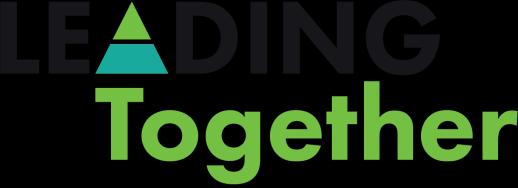LEADERSHIP, MANAGEMENT AND ORGANISATION DEVELOPMENT









2023- 2025
Course brochure










2023- 2025
Course brochure
All staff are leaders at North Tees and Hartlepool NHS Foundation Trust (NTH), regardless of role, job level, or whether we have a formal position to manage or lead people.



Leadership is about successfully delivering results in collaboration with others. It starts with everyone.
By empowering leadership at all levels, we enable a safe, self-assured, highperforming, and progressive organisation, capable of making a positive difference to our population.

The leadership and management package will contain the following:
Leadership programme
Managers’ training day
Difficult conversations
Resilience development
REACT training
Talent management
If you have any questions, please email nth-tr.odaccess@nhs.net.
Leadership is not a person or a position. It is a complex moral relationship between people, based on trust, obligation, commitment, emotion, and a shared vision of the good. (Ciulla, 1998:1)
NTH leaders will lead by living our CARE values at all times. They will empower, support and value our people to be the best they can be.


The leadership charter sets out the expectations of all our leaders, regardless of their profession, status or job role.
• Our population are at the heart of all we do
• Listen to our population
• Seek and act on feedback
• Provide the resources staff need
• Initiate and drive change
• Model our values in all we do
• Reward and recognise staff contributions and efforts
• Support wellbeing and resilience

• Ensure staff feel safe
• Our teams are connected and inclusive
• Provide good quality appraisals and one to-ones
• Provide staff with the right training and development
• Create a just and learning culture
• Address poor performance and behaviour
• Facilitate a culture of continuous improvement
• Be clear on our key priorities
• Make decisions
• Engage with our staff, listen to their views and act upon them
• Share the right information with the right people
• Be open and honest
• Be visible and approachable
• Live the Trust’s vision and values
Everyone is a leader within NTH therefore we all have the responsibility of being good role models.
Our strategy identifies leaders in three groups.
Build on leading with CARE: Strategic leadership, complex systems, resilient connections, leading change and coaching for improvement

Build on leadership for all: Compassionate leadership, resilient connections, coaching skills, talent management, inclusivity, coaching for improvement

Create the foundations for NTH leadership, quality improvement, intelligent kindness, self-awareness, emotional intelligence
These leaders at all levels will follow the leadership charter and embody our Trust values:
Care Collaborative Aspirational

Respectful
Empathetic
This information can be found in the Trust’s leadership strategy..
As an employee, you play a significant role within the trust and have a major impact on patient care and the people around you. Everybody has the potential and expectation to be a Trust leader.

The programme is designed to develop your leadership awareness, skills, knowledge and behaviours. This course will support you to motivate yourself and others to contribute and deliver the Trust’s aspirational vision.
The course will be delivered by the virtual platform which explores:
Trust leadership
Improvement models
NTH values and civility
Self-awareness and emotional intelligence
This will be followed by a four hour face-to-face consolidation session.
By the end of the programme you will have:

An increased understanding of your role as a Trust leader
Improved self-awareness and emotional intelligence
An understanding of how you can affect your team and environment through your behaviours
Developed an understanding of civility and its impact on patient care
Commitment
Participation in this programme requires your commitment to complete the online elements and full participation in the face-to-face session.
Click here to sign up for ‘It all starts with me’ Q2 or scan the QR codes below for alternative dates.

As a leader, you have the potential to play a significant role in the Trust and have a major impact on patient care and the people around you.
The programme is designed to develop your leadership awareness, skills, knowledge and behaviours. It will support you to contribute to Trust leadership and motivate others around you to contribute to, and deliver, our ambitious vision.
The programme is delivered in six sessions over six months, which provides an opportunity to practise and consolidate what has been learned between the formal sessions.
The programme includes:
Access to a virtual platform
A Myers Briggs Type indicator (MBTI) report
The programme utilises Microsoft Teams with files and learning shared for each session. This allows for opportunities to pose questions and explore learning to determine impact and effect of delivered sessions.
By the end of the programme you will have:
An increased understanding of your role and your leadership skills and their impact
An enhanced awareness of your behaviours, style and how you relate to others
An increased confidence in your ability to lead
An increase confidence to develop and implement change and improvement
A stronger and more effective peer network which supports collaboration and sharing of learning and best practice


A greater understanding of structures, processes and strategic alignment
An increased understanding of high performing teams and how to support, influence and lead others
Participation in this programme requires your commitment to attend and participate in each activity and session in full.
You will be invited to attend this session.
As a leader, you have the potential to play a significant role in the Trust and have a major impact on patient care and the people around you.

The Leading with Unity programme is designed to develop your leadership awareness, skills, knowledge and behaviours. The programme develops those concepts and focuses on strategic leadership, complex systems, resilient connections, coaching skills, methods for innovation and quality improvement (QI).

It will support you to contribute to Trust leadership and motivate others around you to contribute to, and deliver, our ambitious vision.
The programme is delivered in eight sessions over eight months, which provides an opportunity to practise and consolidate what has been learned between the formal sessions.
The programme includes:
Access to a virtual platform
A Myers Briggs Type indicator (MBTI) report
There will be allocated facilitators for each cohort who will manage the platform and make sure that learning is shared and conversations are tracked and recorded to demonstrate achievement and progress.
By the end of the programme you will have:
An increased understanding of your role as a high level leader at NTH
Improved awareness on strategic leadership concepts and how your leadership facilitated and manifest change and improvement
Increased appreciation of the differences and challenges of leading and working through complex systems and structures
Understanding of the impact of developing and maintaining resilient connections
Expansion of your daily coaching skills
Development of QI skills
Participation in this programme requires your commitment to attend and full participation in each activity and session
You will be invited to attend this session.
Working in collaboration with the North East Commissioning Service (NECS) a gap analysis has been completed to understand what is already available and delivered within the organisation and additional items which are needed to ensure we have a management programme that meets the needs of those in management roles.
We have designed a programme for those in roles which have a management responsibility and we will also encourage completion of a leadership programme to ensure that individuals have all the skills necessary to be successful in their roles.
The programme will focus on four key areas with focused topics under each area:
Planning, organising and problem solving
Managing information and communication
Decision making
Quality improvement

Project management

Leading change
Staffing and resources
Appraisal training (move to Scope for Growth after pilot)
Talent management/Scope for Growth
People practices
Civility
Wellbeing conversations (REACT)
Recruitment and selection – values and behaviours based interviewing
Personal Development Planning (PDP)
Difficult conversations
Delivering effective feedback
Team development
Emotional intelligence and resilience
You will be invited to attend this session.
Budgeting, finance and data
NHS finance models
Budget management and forecasting
Cost improvement programmes
Business case writing
NHS data usage
How to use Business Intelligence reporting
Interpretation and understanding of data
Control and assurance
Risk assessments
Policies and review management
Risk registers
Patient safety
Datix process
Claims and inquests
Managing medical ethics and legal requirements
Managing complaints
Accountability and responsibility
All sessions above are day one of the managers training.

You will be invited to attend this session.


The resilience at work model (also known as the ‘Sustain 7’) has seven components that contribute to our personal, leadership and team resilience.
Neuroscience tells us the more resources we have, the better equipped we are to manage both adverse situations and everyday demands.
The idea is then that we invest in as many of the seven components as we can.
This session will allow attendees to reflect upon their own resilience, offering suggestions on how to build their resilience further. Click here for Resilience Q1 or scan the QR codes.
This training session will provide an overview in how to respond and approach discussions with people about their wellbeing.

The session will use the REACT approach which is Respond, Engage, Actively listen, Check risk, Talk.
To address:
Common mental health causes
Raising awareness of traumatic events

Creating an understanding of moral injury
You will leave the session knowing how and when to conduct wellbeing conversations with hints and tips to opening the conversation.
Click here to register or scan the QR code.



We are pleased to offered our managers an opportunity to have a training session to explore the process of having difficult or challenging conversations with your people.
A difficult conversation is one whose primary subject matter is potentially contentious and/or sensitive and may elicit strong, complex emotions that can be hard to predict or control.
We aim to give you a pragmatic approach that you could use for these conversations along with a useful process and practical hints and tips to get the best outcome for everyone.


The session is delivered face to face and is a pilot of a new approach and you will be asked for feedback following completion of the training to shape future training formats.
The session aims to provide you with;
An ability to explore how your own ‘state’ has an impact on how we approach and react to constructive conversations
Knowledge and practical skills of how to constructively manage difficult or challenging situations
An understanding of how to make challenging conversations more productive and less draining
Below are the planned training dates for delivery of the difficult conversations training. Click here to register or scan the QR code below.
